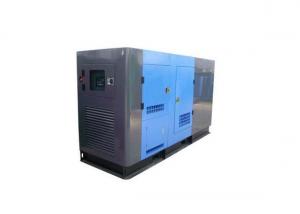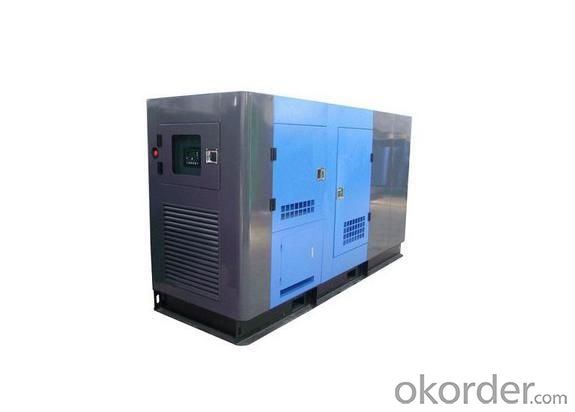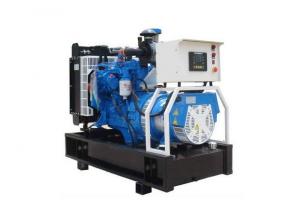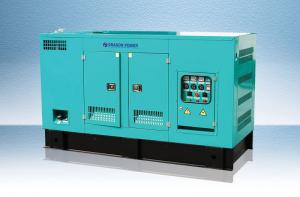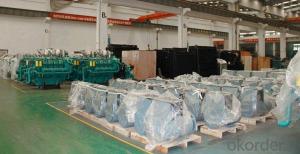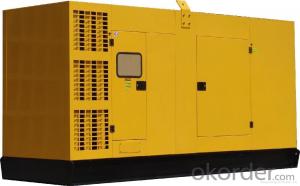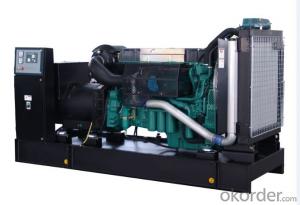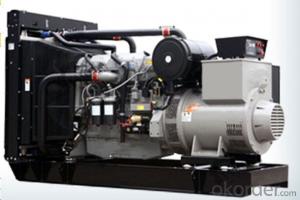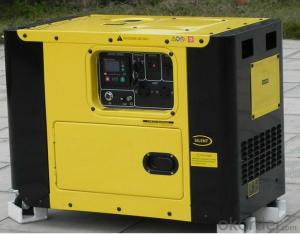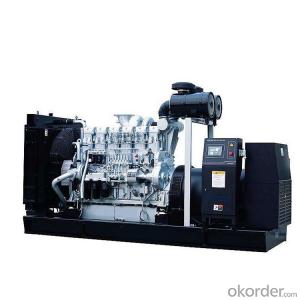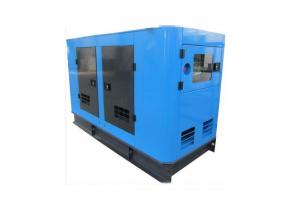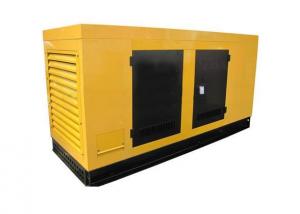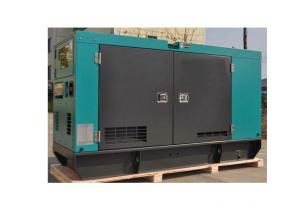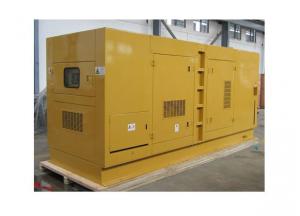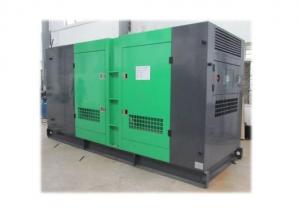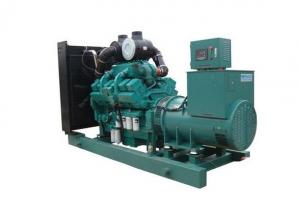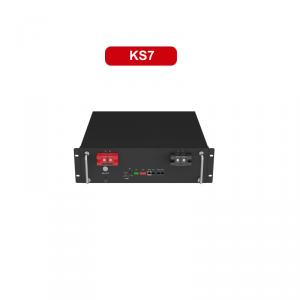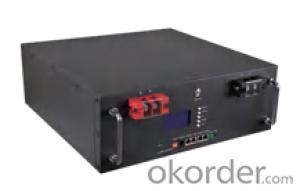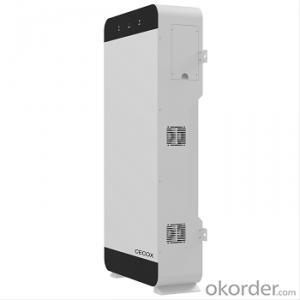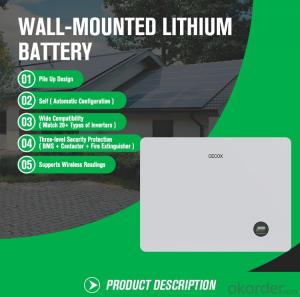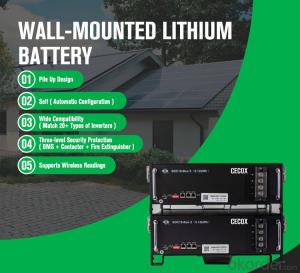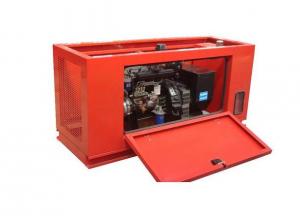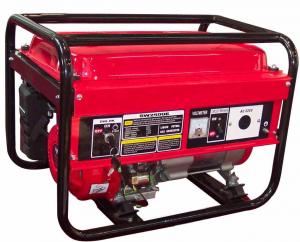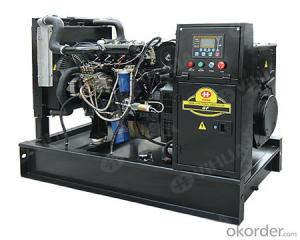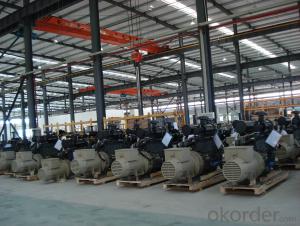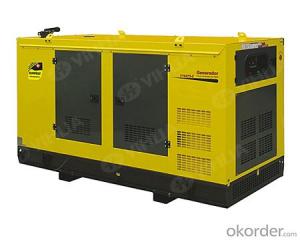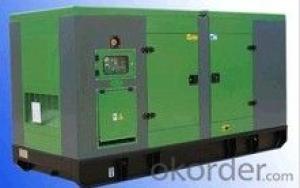Cummins Sound Proof Generator Set 125KVA/100K Watt with Self Exciting Generator Head
- Loading Port:
- China Main Port
- Payment Terms:
- TT or LC
- Min Order Qty:
- 1 Set set
- Supply Capability:
- 20 Sets per Month set/month
OKorder Service Pledge
OKorder Financial Service
You Might Also Like
genset power (KW) | 100 | 110 | |
125 | 140 | ||
6BTA5.9-G2 | |||
DCEC Cummins | |||
Line 6 cylinder, four stroke, turbo charge | |||
water tank radiator meet environment temperature 40OC, belt drive coolant fan , fan cover | |||
electronic Governor | |||
DC 24V electric start | |||
Air filter, diesel filter, oil filter | |||
A/AD type fuel injection pump | |||
5.9 | |||
17.5:1 | |||
102×120 | |||
20.5 | 22.5 | ||
148 | |||
5.9 | |||
15.5 | |||
504 | |||
16.4 | |||
24.5 | |||
Foshan leadtech electric co.,ltd | |||
LTG274D | |||
MCCB air switch | |||
Brushless self-exciting ,ac synchronous | |||
0.8 lagging | |||
excel 5% | |||
≥95%—105% | |||
excel ±1% | |||
H class/IP23 | |||
TIF<50/ THF | |||
- Q:i have a 2004 duramax 6.6 diesel truck.does anyone know if there is a converter kit to use the truck as a generator for my house?
- Sure, no problem. Here's the place to go. Get a list of your RPO's to tell if you have the right trans when you check out the site.
- Q:A couple years ago the power in our area was out for two whole weeks because of ice and such, we stayed warm thanks to gas heating but now I'm in an all electric mobile home in the same area. All I want to power is the refrigerator, deep freeze, microwave, one laptop and at least one, maybe two little plug in heaters.I need to know what size/type generator to get and if I need a separate kit or anything in order to hook up to my mobile home. I don't want to buy the wrong type or size and find out it doesn't work in the middle of an ice storm again.Thank you for any and all help, it's very much appreciated.
- Total the wattage of All of the devices you want on the generator. Typical heater is about 1500 watts, a microwave about 900, the freezer and the refrigerator about 1500 or 1800 watts each, totals to about 4500 watts. If you get a gas generator which is the least expensive type then a unit 1.5 times the total is the smallest you should choose for a typical run item these will probably be rated about 7500 watts peak. Any smaller and you risk brownouts that will destroy the equipment you are trying to operate. A 10% cushion is just too small for these smaller units. If you choose a more expensive diesel powered unit it is safer at the 7500 watts, if you choose natural gas or propane then it must be double the computed wattage.
- Q:I intend to buy Diesel Generator sets in USA but the problem is that the Generator sets available in USA are 50/60Hz /1800rpm, pf 1.0 , 277/480V whereas in my country the Frequency is 50Hz , Voltage is 220/380V and power factor is 0.8. What shall I do to convert the US spec's to what is my requirement.
- You can adjust the frequency to 50HZ by running the generator at a speed lower than 1800rpm., that is 1500 rpm. At this speed check the terminal voltage. The voltage can be adjusted to 380 volts using the potentiometer adjustment on the generator panel. The 220 volts can be obtained by using a parallel connection assuming that the generator is wye connected. Actually, the voltage of 380 volts to neutral is 219.39 volts, which is approximately 220 volts. Hence, you may not have to reconnect the generator terminals. The difference in P.F. will not matter much.
- Q:I been thinking, and it seems to me our future vehicles would be best suited with a small 1~ liter diesel engine turning a generator to power 4 electric motors at the wheels of the car/truck, just like locomotives use. Advantages would be significantly increased fuel economy, AWD, no transmission and axle weight(offset by weight of batteries, longer lasting diesel engine, easier and cheaper to repair due to small engine size, fewer moving parts, and decreased complexity, regenerative braking, significantly reduced emmissions, less noise, no idling when not moving.Seems the advantages would vastly outweigh the disadvantagesDoes anyone build such a vehicle?
- Volvo is developing a system like you're describing. Hybrids are just a bridge technology to full electric drives. The back-end progress on electrics is greater than most people think. They will keep extending the range, reducing the charging time and lightening the batteries. Once those technologies reach mass-market the other more marketable aspects of electrics like their lack of maintenance needs, quiet operation, and far superior handling with do the rest. At that point hybrid technology will be relegated to buses and other large vehicles, along with trains where it's been for quite some time.
- Q:I am shopping for alternative power source as diesel powered generators are becoming too expensive and noisy
- Your best bet is going to be Geothermal. It's cheap, reliable, and can be used 99% of the time. That is if you are thinking solely of hot water /space heating and cooling A wind turbine will set you back slightly less cash but it is also limited to factors such as: - if the wind isn't blowing with enough velocity, then the turbine isn't spinning (cut-in speed) which means the turbine isn't producing 100% of the time. -your location may not be suited for wind harvesting( not enough wind duration per year) -the bigger the generator, the larger the diameter of the wind swept area. I don't think you would want a 7MW +400' diameter turbine in your backyard(source below). If you are thinking of electrical needs then solar PV may be another option to invest in. Either way, talk to a renewable energy specialist about scouting your area for efficiency before you make a decision.
- Q:I live what i consider near a nuclear generating station in NJ.The site is Toms River Nuclear Generating Station, how would a melt down effect Rahway,NJ or the surrounding areas in general? How wide would the radius be? Or how much damage would be expected? Not stupid answers and no, You don't live in the ring of fire b.s. so don't worry about a tidal wave. Im questioning the unknown and the unexpected.
- The answer depends entirely on the kind of accident or incident. It is not possible to predict without the hypothetical accident type, since not all accidents result in a core meltdown, and there are different ways for the core to end up in melt down situation. The danger zone also depends a great deal on the wind and weather conditions at the time and immediately afterwards. Obviously, if the wind is blowing from your location toward the plant, then there is less likelihood that you will be contaminated.
- Q:If an 5MW diesel generator works for 30 days non stop how much diesel will it use.
- the rule of thumb is that an efficient diesel, working continuously burns 1 gal/hr for every 15hp developed. A 5MW generator therefore requires about 6,705 hp. 6705/15 447 gal/hr in 30 days30 * 24 *447 321,840 gallons. Given that very large engines can be extraordinarily efficient, which will make up for some of the mechanical and electrical losses, a good guess would be 300,000 gallons
- Q:I want to be able to plug my APC Smart-UPS RT 8000VA 208V into a diesel generator when our power will be down for an extended period of time. The max OUTPUT of the APC unit is 6400w. Does that mean I need at least a 6400w Generator?
- Your problem is not that simple. Average generator is either 220 or 110 volts or three phase. If three phase, you have to know weather delta or wye connection. You are talking about a leg of a 440 volt 3 phase. Not totally familiar with voltages between phases or one phase to neutral. Cheapest is to get a 220 volt generator and a buck/ boost transformer to convert the 220 to 208. Since your ups output is 6400 watts, power your application directly with a generator that will power your buck/boost transformer with at least 6000 watts. 7-8000 watts is a better guess. Or I assume that you want to use the UPS to give perfect waveform to whatever you are powering. In that case --- you will need to use the buck boost transformer after a generator that gives 220 volts at least 9000 watts.
- Q:I have an old generator that the motor doesn't run. I want to salvage the generator head and make something like a wind, steam, or bio diesel generator I haven't made my mind up yet. But for now I need to dismantle the head from the motor. I think it has some kind of a ratio box on it too I'm not sure I've never done this before. I sure would appreciate any help!
- The generator end should unbolt, followed by the stator. Remove everything you can and all that should remain is the rotor attached to the engine crank shaft.
- Q:And WHY?
- Hydrogen fuel cell cars are electric cars, where the fuel cell serves as the battery. So the hydrogen, electric, and battery cars are all electric vehicles, while the gas and diesel cars are petroleum powered. * Gasoline is not efficient (maybe 15% efficient in traffic), and it is not clean. Since it takes about 6 kilowatt-hours of energy just to refine a gallon of gasoline or diesel, and this energy alone could power an EV 20 to 30 miles all by itself, it is quite impossible to build an gas powered vehicle more efficient than an electric vehicle - the EV has already driven to it's destination on the energy you used just to make your gasoline. * This leaves the contest between hydrogen fuel cells and batteries. Unfortunately, hydrogen is not really a fuel - it is like the lithium in a lithium battery - it is just part of a chemical system for storing energy. * Energy is stored by separating hydrogen from water - and energy is then released by combining hydrogen with oxygen to make electricity in the car, creating water again. This is a reversible chemical process, exactly how a battery works. The energy does not come from hydrogen, typically it comes from the electricity used to separate hydrogen. The hydrogen stores the electricity, just like a battery does. * But the hydrogen cycle I have described is much less efficient than other battery technologies. So battery powered EVs are the most energy efficient.
1. Manufacturer Overview |
|
|---|---|
| Location | Guangdong,China |
| Year Established | 2010 |
| Annual Output Value | |
| Main Markets | 10.00% Mid East 10.00% Eastern Asia 10.00% Southeast Asia 10.00% Africa 10.00% Oceania 10.00% Domestic Market 5.00% North America 5.00% Western Europe 5.00% Central America 5.00% Northern Europe 5.00% South America 5.00% Eastern Europe 5.00% Southern Europe 5.00% South Asia |
| Company Certifications | ISO 9001:2000;ISO/TS 16949 |
2. Manufacturer Certificates |
|
|---|---|
| a) Certification Name | |
| Range | |
| Reference | |
| Validity Period | |
3. Manufacturer Capability |
|
|---|---|
| a)Trade Capacity | |
| Nearest Port | Foshan |
| Export Percentage | 71% - 80% |
| No.of Employees in Trade Department | 6-10 People |
| Language Spoken: | English, Chinese, Japanese |
| b)Factory Information | |
| Factory Size: | 1,000-3,000 square meters |
| No. of Production Lines | 3 |
| Contract Manufacturing | OEM Service Offered Design Service Offered |
| Product Price Range | Average |
Send your message to us
Cummins Sound Proof Generator Set 125KVA/100K Watt with Self Exciting Generator Head
- Loading Port:
- China Main Port
- Payment Terms:
- TT or LC
- Min Order Qty:
- 1 Set set
- Supply Capability:
- 20 Sets per Month set/month
OKorder Service Pledge
OKorder Financial Service
Similar products
New products
Hot products
Hot Searches
Related keywords
